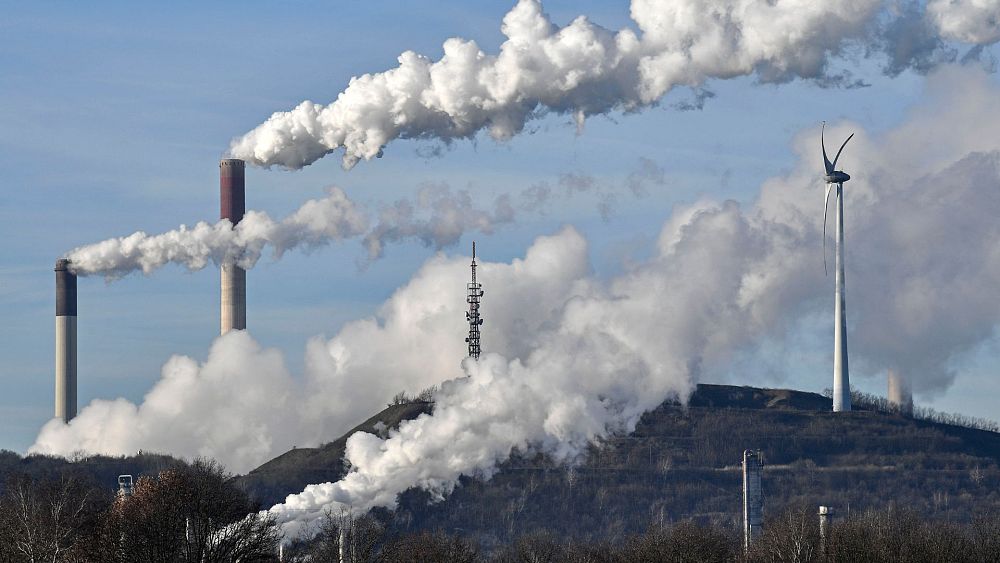
Researchers found that applying a carbon tax on luxury goods would be a “fairer” way to reduce emissions.
Taxing luxury items like flights and SUVs would cut more greenhouse gas emissions than a blanket carbon levy on all goods, new research has found.
In the ongoing fight to reduce carbon emissions and slow climate change, new laws and policies are constantly being discussed. If countries are going to hit their reduced emission targets, things need to change.
Carbon taxes are fees companies must pay for every tonne of emitted carbon above the set limit. The purpose of the tax is to encourage manufacturers and distributors to reduce their carbon footprint and invest in alternative, more environmentally-friendly, manufacturing or delivery processes.
How do carbon taxes work at the moment?
At present, carbon taxes are the same across all economic sectors – regardless of the product or service being sold. Often, revenues from this tax are put towards green energy research and development.
Twenty-seven countries currently have significant carbon taxes in place: Argentina, Canada, Chile, China, Colombia, Denmark, The European Union, Japan, Kazakhstan, South Korea, Mexico, New Zealand, Norway, Singapore, South Africa, Sweden, the UK, and Ukraine.
The EU has its own emissions scheme called the EU ETS which was created in 2005. Companies who are part of the EU ETA can buy and sell carbon they are allowed to emit under this scheme, before surrendering their allowances at the end of the year.
Each year the EU reduces the cap, resulting in a 43 per cent decline in emissions from power and heat generation and energy-intensive industrial sectors since its inception.
However, some researchers believe that this is an ineffective way of reducing household emissions, as some high carbon products such as heating and fuel are essential items for day-to-day living.
With a blanket carbon fee, high-income and low-income households are charged the same, disproportionately penalising those on lower wages.
The research accounted for 90 per cent of world
Researcher Yannick Oswald and his team modelled the results of luxury-only carbon taxing on 88 countries, representing roughly 90 per cent of the global population. The products defined as ‘luxury’ varied per location, based on how consumers were likely to respond to raised prices.
“The scheme we are proposing will introduce a higher carbon tax for luxury goods, such as flying long-haul or driving a high-performance car, and a lower carbon tax for goods and services that meet basic human needs, such as providing housing, cooking and healthcare,” Yannick explains.
Taking the US as an example, Yannick’s team applied a uniform carbon tax of $150 (€135) per tonne, and measured it against a variable tax on luxury goods. Home heating was modelled at $100 (€90) per tonne, household appliances at $200 (€180) per tonne, and package holidays at $300 per tonne.
The uniform tax resulted in an average national emissions reduction of 4.4 per cent.
Under the luxury goods tax, this increased to 4.8 per cent.
More benefits than just emission reduction
The results of the study are quite revealing. Findings suggested that if all 88 countries adopted luxury taxes, it would likely deliver 75 per cent of the emissions reductions needed to keep global warming below 2°C by 2050.
However, in order to deliver carbon emissions targets set out in the Paris Agreement, Yannick says this scheme would need to begin, “promptly, universally and with high and rapidly rising carbon prices as compared to any policy currently in place”.
Carbon reduction isn’t the only benefit theorised in this scenario either. Particularly in higher-income countries, gaps in inequality would also likely declineAs many of the cutbacks would be on luxury items rather than household essentials, there would be “fairer distributional effects,” according to Yannick.
Taxing luxury items alone may not be realistic
Implementing a luxury taxwould be incredibly complex, as merely collecting enough data on every product would be a colossal undertaking.
But, Yannick notes, “If you want to implement such a policy in the long term, you need to have a good data flow feeding into something like this.”
It would also likely face challenges politically, as taxing the wealthy often needs substantial justification for voters to back it.